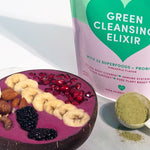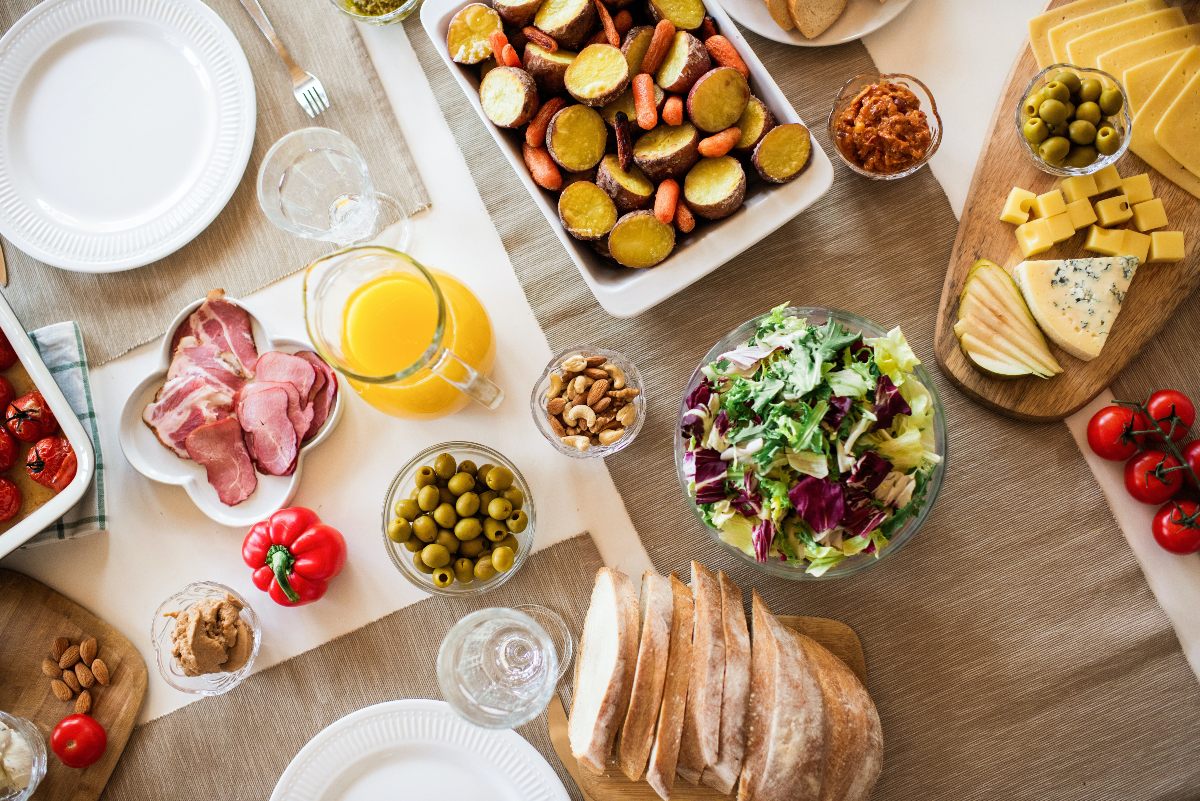
Feeling kinda down and sick of your absolutely trying journey towards your body goals? We totally get you girl. The route to your ultimate beach body is a long journey and as much as we’d like one ourselves, there’s sadly no magic pill or diet that will dissolve all the jiggles on your sides overnight. And trust us when we say that crash diets and juice cleanses are not the way to go and actually do your body more harm than good.

But don’t be bummed out and feel discouraged, because we think we might have just about cracked the code for a sustainable long-term solution for a healthier lifestyle! These realistic and smart food swaps still fill your tummy up (for way longer), tastes great and nourishes your body a whole lot more, all while also lowering your calorie intake. A sustainable yet balanced diet together with the right health supplements and an active lifestyle are definitely the holy trinity of any weight loss journey!
Sustained Weight Loss 101
Don’t get too intimidated by everything, food swaps are actually a pretty straightforward concept. It’s basically replacing high-calorie-density foods with similar low-calorie-density foods. Calorie density or energy density, is used to measure the calorie content of food relative to its volume. This means that a full bowl of greek yogurt, which has a low calorie density, will still be lower in calories compared to that of a full bowl of ice cream, that has a high calorie density.
Low-calorie-density foods often consist of unprocessed natural wholefoods that provide your body with more nutrients, such as fruits and lean meats like chicken and white fish. While some high-calorie-density foods such as avocados and nuts too contain essential nutrients, it is important to strike a balance between these two food categories for both your weight loss goals and long-term health benefits.
We’re here for you girl so don’t worry about it! These 10 food swaps we’ve got for you is a quick and easy start to a wholesome diet that’s best paired with our yummy supplements to maximize your results.
1. Replace Butter with Avocado

Calories saved/100g: 500 calories
We know, butter and toast just go together and you could never imagine having your sandwiches without a generous slab of buttery goodness. But with its high saturated fat and cholesterol composition that not only contributes to a crazy amount of calories, but also substantially increases the bad cholesterol in your blood, so is it really worth it? We did the math for you and a tablespoon (12g) of butter adds up to a hefty 102 calories!
Alternative: Slice, cube, mash or even make a rose with some ripe avocados for your toast, it’s a total gamechanger. The same amount of avocados only sets you back 19 calories and is enriched with a whole bunch of vitamins and dietary fiber at the same time! Pair it with some salt and pepper to really bring out its taste and creamy texture.
2. Replace Granola with Oatmeal
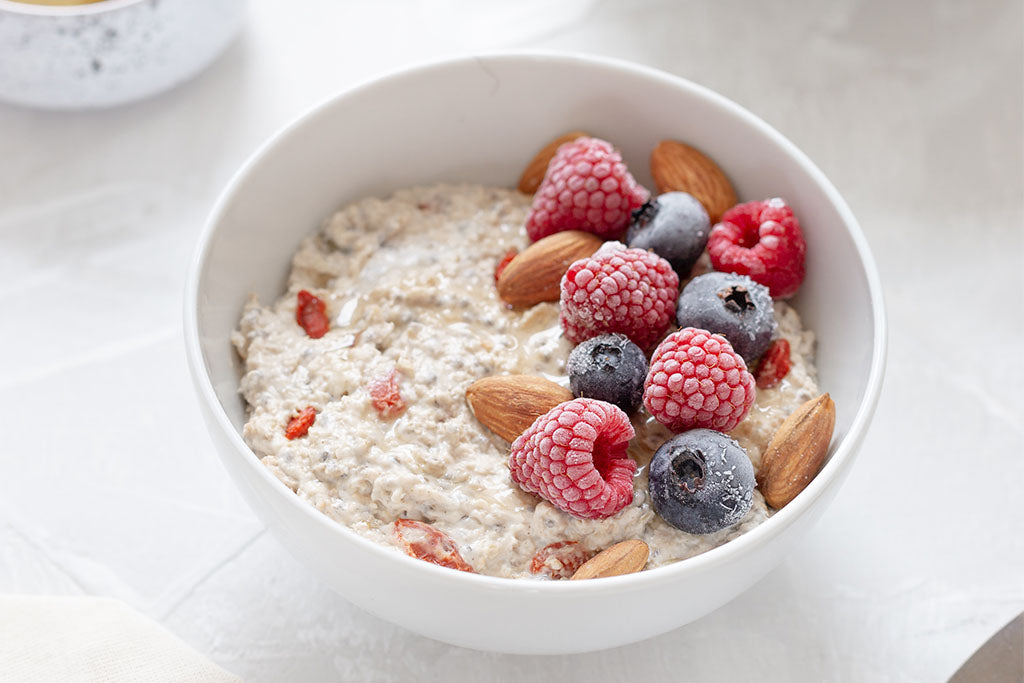
Calories saved/100g: 105 Calories
Yes you heard that right, your oh-so “healthy” granola cereal is not as calorie friendly as you think. Most store-bought granolas are coated with sugar or honey, and drives up the calorie count with its added nuts and dried fruit, even though these too have nutritional value.
Alternative: Go back to basics with the trusty and super versatile traditional rolled oats! We love ours either cooked or soaked overnight with skim milk, or whichever dairy alternative you prefer, together with a dash of cinnamon, chia seeds, fresh fruits and a scoop of our Green Cleansing Elixir for a little matcha kick. They make for the perfect quick and healthy breakfast and fill you up for hours, all while containing 1.5 times less calories than your regular store-bought granola.
3. Replace Cow’s Milk with Unsweetened Almond Milk

Calories saved/100g: 42 Calories
Step aside cow’s milk, because almond milk is here to claim its throne. The amount of calories in a cup of cow’s milk is definitely something to take note of, with even a cup of non-fat milk having thrice the calories of that of unsweetened almond milk. Lactose intolerance is also an extremely common occurrence, with dairy products causing various health issues in many, such as bloating, nausea and acne. Abstaining from dairy and switching to a plant-based alternative, such as almond milk, is definitely a sustainable yet delicious solution that’s worth a try!
Alternative: Add a splash of unsweetened almond milk into your coffee or smoothies instead of cow’s milk as a low-calorie alternative! Almond milk is also a great source of calcium, vitamin A and vitamin D, that makes for an all-rounded meal. Be sure to purchase almond milk that’s unsweetened and fortified with calcium to reap its benefits!
4. Replace Fruit Yogurt with Greek Yogurt with Fresh Fruits
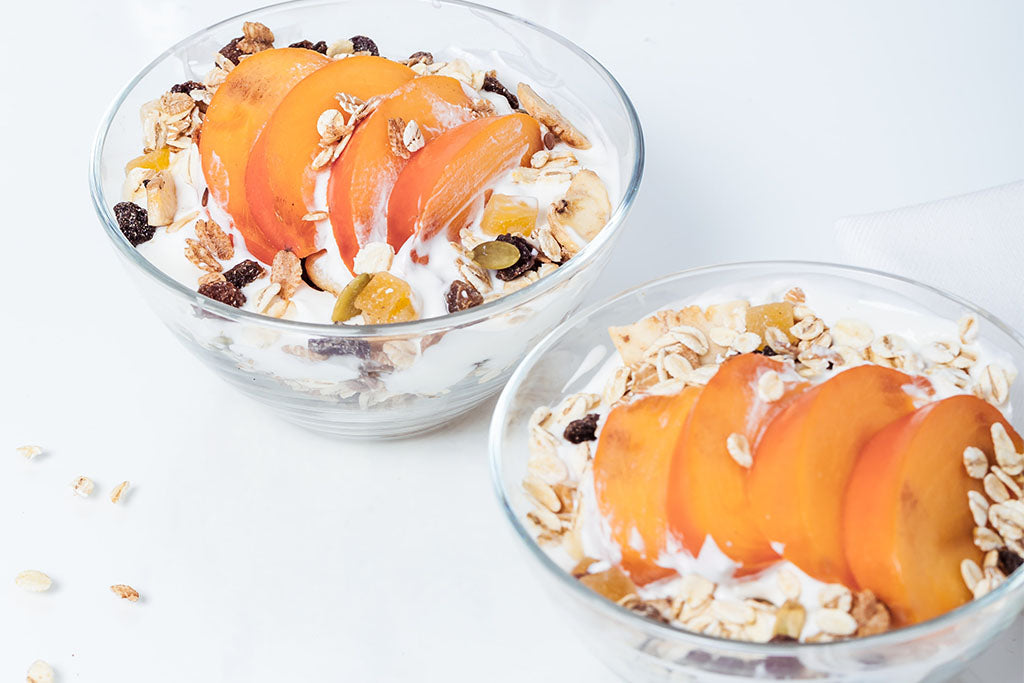
Calories saved/100g: 105 Calories
Yogurt is always a delicious and nutritious choice for all your breakfast or snacking needs! Its creamy nature paired with fresh fruits makes it one of our all-time favourite healthy breakfasts. While regular yogurt is a good source of protein, calcium and probiotics, it is important to opt for plain yogurt topped with fresh fruits, compared to fruit infused yogurt - this alone saves you 71 calories and fresh fruit is more wholesome than its counterparts.
Alternative: Take it to the next level with Greek yogurt! Greek yogurt contains double the amount of protein than regular yogurt, which will keep you feeling full and satisfied for a longer period of time - great for cutting those calories! It’s also a great alternative if you’re lactose intolerant as it contains less lactose compared to regular yogurt. We love ours with a bunch of fresh fruits, a sprinkle of cinnamon and chia seeds, or even a smoothie!
5. Replace Scrambled Eggs with Poached Eggs
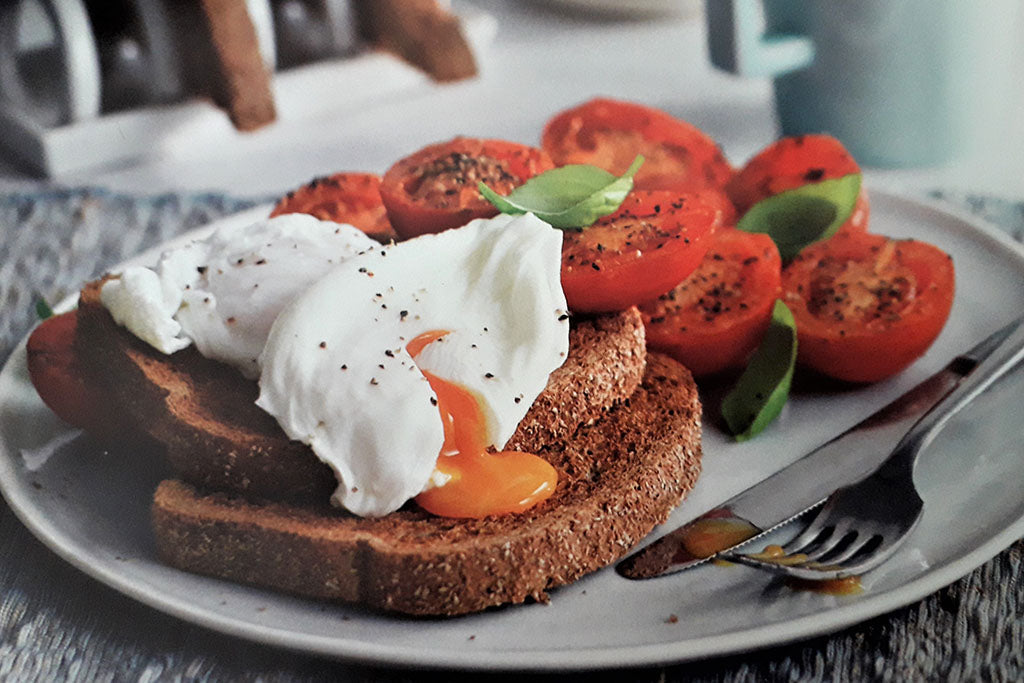
Calories saved/2 eggs: 100 Calories
We know that the delicious smell of melted butter and the sizzling sound of those scrambled eggs make mornings a thousand times less dreadful. The general rule of thumb for the perfect scrambled eggs usually includes some butter and occasionally a splash of milk and cheese - that’s an extra 100 calories being folded in right there that you don’t want. We can all agree that eggs are an essential part of every breakfast, which is why we would never get you to completely cut them out - why would we when they’re a delicious source of protein and vitamins?!
Alternative: Plop those eggs into bubbling hot water for a healthier protein alternative! Have it hard-boiled, soft-boiled, or poached - all of which make amazing low-calorie meals that are still packed with protein. Flowy poached eggs paired with wholewheat toasts and avocado are our go-to protein-packed breakfast, along with a cup of Morning Boost tea of course!
6. Replace Peanut Butter with Almond Butter
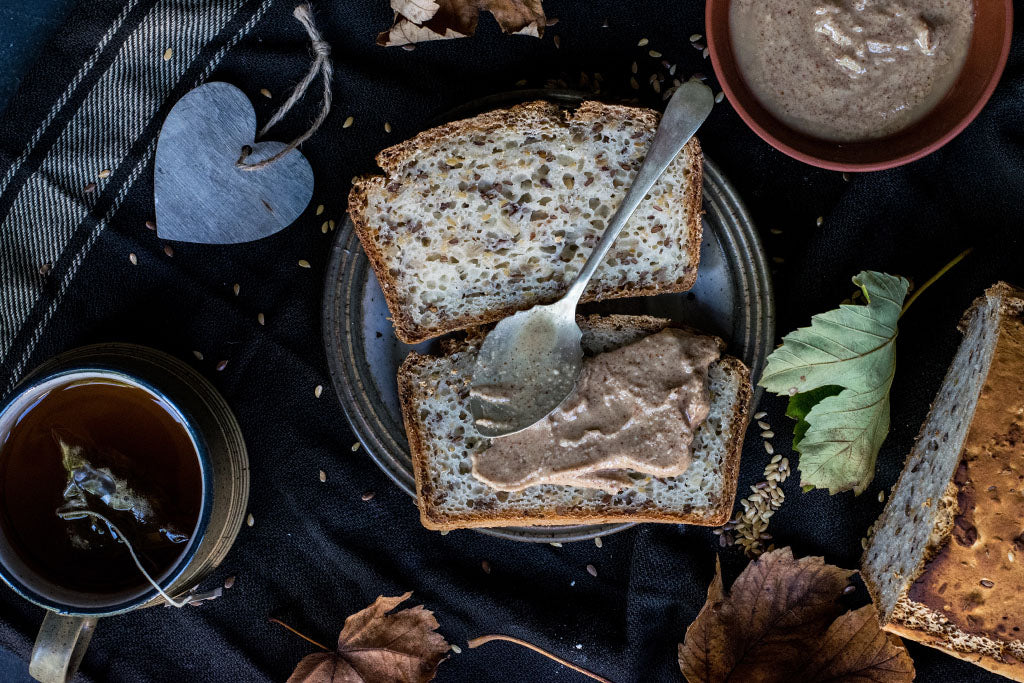
Calories saved/100g: 62 calories
That jar of creamy (or crunchy) childhood nostalgia is definitely a staple to all our sandwich needs, same here we totally get it! Peanut butter is no doubt a great low-carbs source of protein, that’s well-loved by all of us so it’s a win-win situation right there. But when it comes to having that creamy spread all over your bread everyday, a simple switch to almond butter would save you some unneeded calories with a whole lot of additional vitamins and nutrients.
Alternative: There’s no turning back once you slap some of that smooth almond butter on for the first time, it’s insanely yummy. Besides it having lesser calories than peanut butter, it’s also packed with even more good fats, vitamins and minerals, with almond butter containing nearly three times as much vitamin E, twice as much iron, and seven times more calcium than peanut butter! Best part is it’s extremely easy to make it yourself - check out this simple recipe for your own homemade almond butter.
7. Replace White Rice with Brown Rice
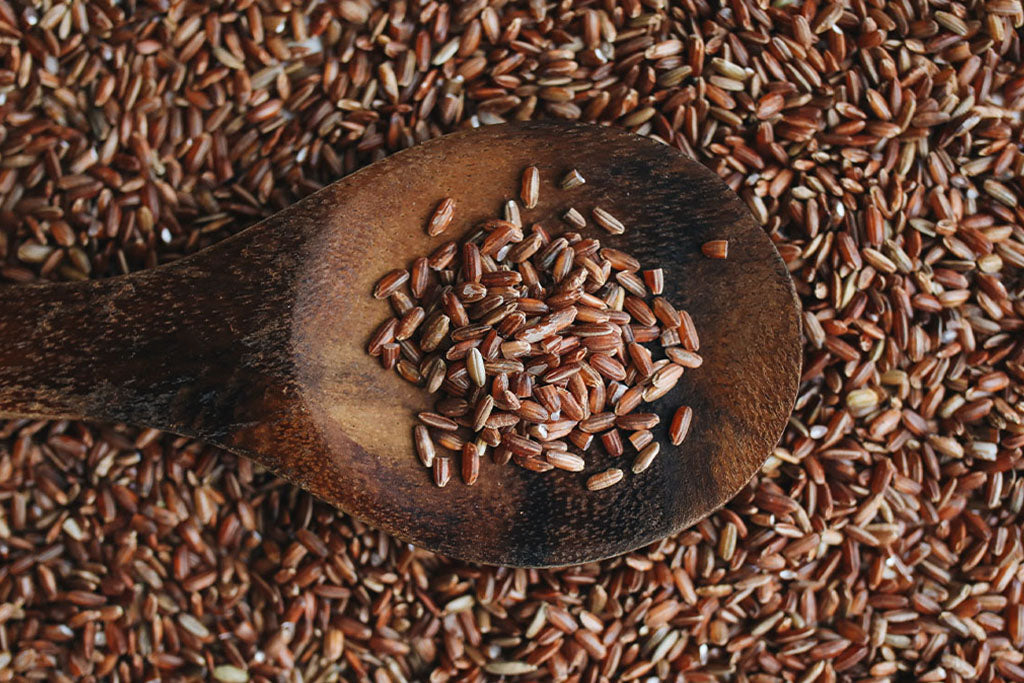
Calories saved/100g: 39 Calories
A bowl of fluffy steamed rice is always (guilty as charged), a yes from us, always. However, sad to say that one of our favourite grains is actually perhaps the unhealthiest of them all. With most of its nutrients, minerals and fiber being stripped away during its processing, white rice should definitely not be your go-to grain if you’re looking to shed those calories. Its high glycemic index means it is quickly digested which may cause spikes in blood sugar levels and have you feeling hungry soon after consuming it - no thanks!
Alternative: Easily replace your white rice with its way healthier and weight-loss friendly variety - brown rice! It is packed with fiber that’s key to boosting your metabolism, kicking off your weight loss journey to a great start. It also helps to save you a couple extra calories compared to white rice so what’s not to like about it?
8. Replace White Rice with Cauliflower Rice
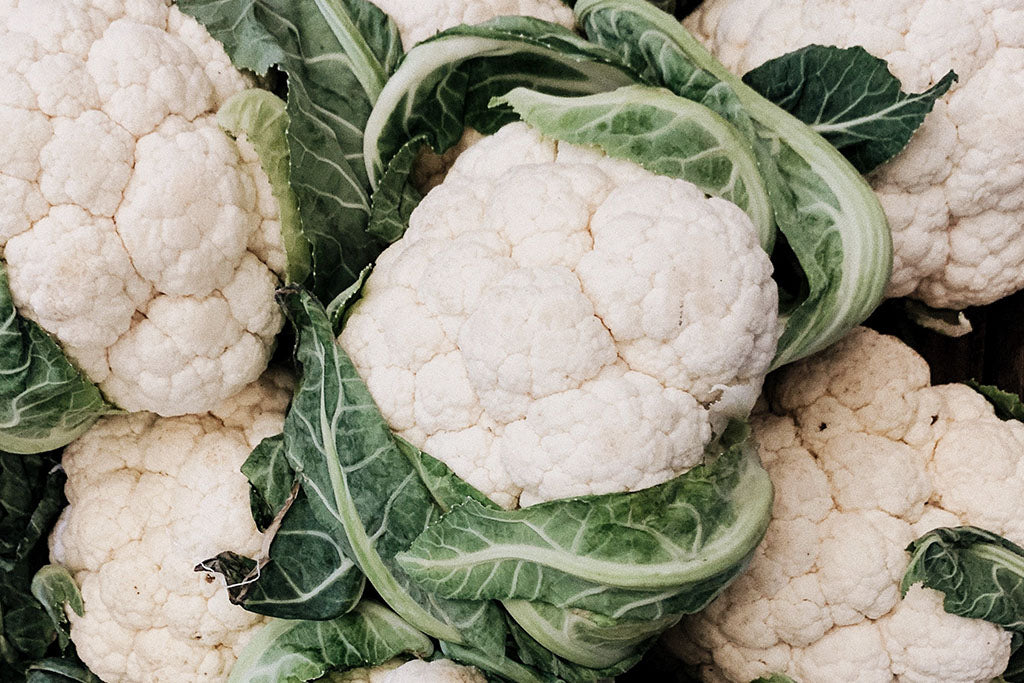
Calories saved/100g: 127 Calories
If you just aren’t feeling some brown rice, another way to jazz up that steaming bowl of white rice without the excessive calories and sugar is, believe it or not, a whole bunch of cauliflower. Yes you heard that right, cauliflower!
Alternative: Ricing this fiber-packed veggie in a blender or food processor in place of white rice makes for an incredible guilt-free yet balanced meal that feels just like white rice! It’s packed with loads of minerals and vitamins, including vitamin C, potassium and even plant-based protein that’s going to help keep you full, minus the calories. There’s a million ways to spice up your cauliflower rice, it goes with absolutely anything and everything! We love ours with a bunch of fresh herbs, garlic and lemon, check this mouth-watering recipe out.
9. Replace Potato Chips with Tortilla Chips

Calories saved/100g: 139 Calories
Once the Netflix logo is up on our screens, you know it’s time to pop open that holy grail bag of chips. And it’s usually gone way before the credits roll up. But of course it’s not a shocker when we tell you that it’s not exactly the healthiest or most wholesome snack, we all know that, especially when it comes to flavoured ones. Potato chips are filled with not only fat, but also a tremendous amount of calories that you should definitely steer clear of - why are the best things always the worst?!
Alternative: Leave that bag of barbecue chips on the shelf and grab that bag of tortilla chips instead! Tortilla chips too make for a fantastic crunchy snack, that even goes well with various dips like hummus and salsa that adds to its nutritional value. With plain tortilla chips having less sodium and saturated fat than potato chips, they also save some calories as well! However, it is still important to consume in moderation when it comes to both chips as they are still both a high-calorie, high-fat snack.
10. Replace Ice Cream with Frozen Yogurt
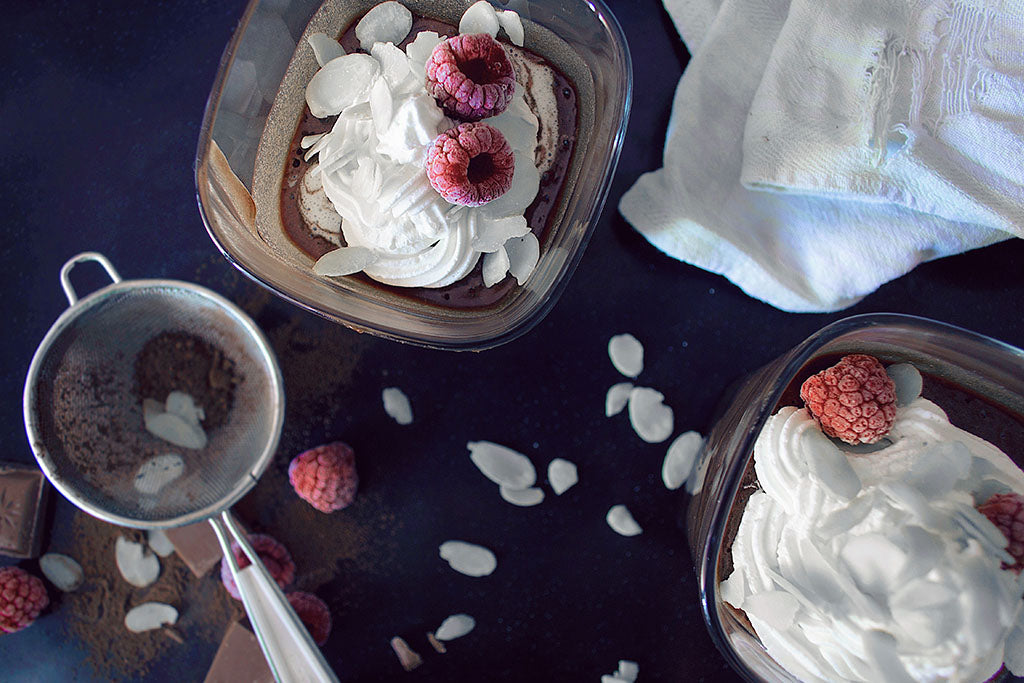
Calories saved/100g: 245 vs 163 Calories/Normal 103 calories
The perfect complement to every meal is a scoop of ice cream to end it off, there’s no arguing with that. But is that frozen creamy treat really worth all those extra calories and fat? Ice cream contains at least 10% milkfat with the use of cream to give it its texture, and sets it apart from frozen yogurt, with its higher fat and calorie content. Several premium ice cream brands contain 3 times more calories and 5 times more fat compared to frozen yogurt, so let’s not even go there!
Alternative: Flip open that pint of frozen yogurt instead for your mid-day post-meal dessert craving! It does the trick to satisfy that sweet tooth and hits all the right spots, all while tasting great with much lesser calories. Frozen yogurt also uses cultured milk instead of cream, which significantly reduces the amount of fat and calories, while also containing probiotic bacteria that’s amazing for your digestive system, and nutrients like vitamin D, protein and calcium! Take note that despite it being a better low-calorie alternative, it still contains a notable amount of sugar which you too should avoid, so it’s all about portion control!
The Main Takeaway
Don’t be too hard on yourself if you’re not noticing immediate results, it’s a long journey that requires patience so just have fun with it along the way! Getting a mean summer bod starts with making smarter and healthier food choices, which also means knowing which supplements to take that perfectly complements your diet. Take our quiz to find out which product would go best with your health goals!




